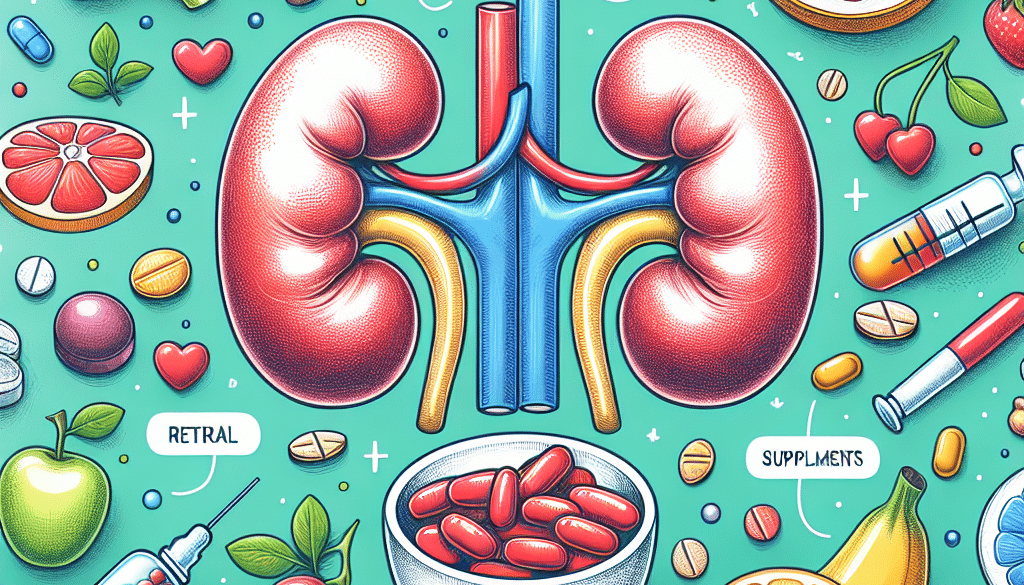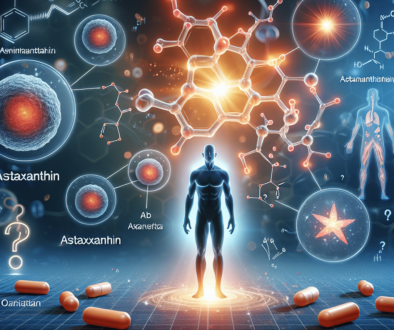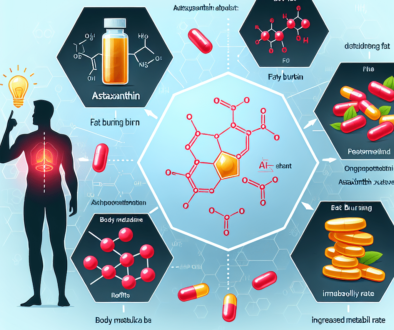Is Astaxanthin Safe For Kidneys?
-
Table of Contents
- Astaxanthin and Kidney Safety: An In-Depth Analysis
- Understanding Astaxanthin
- The Role of Antioxidants in Kidney Health
- Is Astaxanthin Safe for the Kidneys?
- Case Studies and Clinical Trials
- Potential Side Effects and Interactions
- Conclusion: Balancing Benefits and Safety
- Discover ETprotein’s High-Quality Protein Products
Astaxanthin and Kidney Safety: An In-Depth Analysis

Astaxanthin, a naturally occurring carotenoid found in certain marine plants and animals, has gained popularity as a dietary supplement due to its potent antioxidant properties. As with any supplement, concerns about its safety and potential side effects are paramount, especially regarding vital organs such as the kidneys. This article delves into the current research surrounding astaxanthin and its safety profile for kidney health.
Understanding Astaxanthin
Astaxanthin is a keto-carotenoid that contributes to the vibrant red and pink colors of salmon, shrimp, and other seafood. It is also present in the microalgae Haematococcus pluvialis, which is a primary source for commercially produced astaxanthin supplements. Known for its strong antioxidant activity, astaxanthin is said to have several health benefits, including supporting skin health, enhancing athletic performance, and potentially reducing the risk of chronic diseases.
The Role of Antioxidants in Kidney Health
The kidneys are responsible for filtering waste products from the blood and excreting them in urine. This process exposes the kidneys to oxidative stress, which can lead to inflammation and damage over time. Antioxidants like astaxanthin are thought to neutralize free radicals, potentially protecting the kidneys from oxidative damage.
Is Astaxanthin Safe for the Kidneys?
Research on astaxanthin’s safety for kidney health is still emerging, but current studies suggest that it is generally safe and may even offer protective benefits for the kidneys. Here are some key findings:
- Antioxidant Protection: Studies have shown that astaxanthin can reduce oxidative stress and inflammation, which are key factors in the development of chronic kidney disease (CKD).
- Dosage Considerations: Most research indicates that astaxanthin is safe at commonly recommended doses, which range from 4 to 12 mg per day for humans.
- Preclinical Studies: Animal studies have demonstrated that astaxanthin can improve kidney function and reduce injury in various models of kidney damage.
However, it is important to note that while these findings are promising, more clinical trials are needed to fully understand the long-term effects of astaxanthin on kidney health in humans.
Case Studies and Clinical Trials
Several studies have investigated the effects of astaxanthin on kidney health. For example, a study published in the journal “Marine Drugs” found that astaxanthin reduced markers of oxidative stress and inflammation in diabetic nephropathy, a type of kidney damage caused by diabetes. Another study in the “Journal of Renal Nutrition” suggested that astaxanthin might help improve the antioxidant status of patients with CKD.
Despite these positive findings, it is crucial to approach supplementation with caution, especially for individuals with pre-existing kidney conditions or those taking medications that could affect kidney function.
Potential Side Effects and Interactions
While astaxanthin is considered safe for most people, there are potential side effects and drug interactions to be aware of:
- Side Effects: Astaxanthin is generally well-tolerated, but some individuals may experience mild side effects such as abdominal pain or allergic reactions.
- Drug Interactions: Astaxanthin may interact with certain medications, including antihypertensive drugs and anticoagulants, potentially affecting their efficacy.
- Pre-existing Conditions: People with hormone-sensitive conditions or autoimmune diseases should consult with a healthcare provider before taking astaxanthin.
It is always recommended to speak with a healthcare professional before starting any new supplement regimen, particularly if you have underlying health conditions or are taking other medications.
Conclusion: Balancing Benefits and Safety
In conclusion, current research suggests that astaxanthin is safe for the kidneys at recommended doses and may even offer protective benefits against oxidative stress and inflammation. However, as with any supplement, it is essential to consider individual health circumstances and consult with a healthcare provider to ensure safety. Further clinical trials are needed to fully establish the long-term effects of astaxanthin on kidney health.
Discover ETprotein’s High-Quality Protein Products
If you’re looking to complement your health regimen with high-quality protein products, consider exploring ETprotein’s offerings. ETprotein is a reputable manufacturer and supplier of organic bulk vegan proteins and L-(+)-Ergothioneine (EGT), providing a range of products that cater to various industries and dietary needs.
From organic rice protein to clear pea protein and pumpkin seed protein, ETprotein’s products are characterized by their neutral taste, non-GMO, and allergen-free attributes. With L-(+)-Ergothioneine purity over 98%, these proteins are ideal for nutraceutical, pharmaceutical, cosmeceutical, and food and beverage applications.
Trusted by leading global brands, ETprotein ensures that you receive only the highest quality protein products to support your health and wellness goals. For more information or to sample their products, please contact ETprotein and email sales(at)ETprotein.com today.
About ETprotein:
ETprotein, a reputable protein and L-(+)-Ergothioneine (EGT) Chinese factory manufacturer and supplier, is renowned for producing, stocking, exporting, and delivering the highest quality organic bulk vegan proteins and L-(+)-Ergothioneine. They include Organic rice protein, clear rice protein, pea protein, clear pea protein, watermelon seed protein, pumpkin seed protein, sunflower seed protein, mung bean protein, peanut protein, and L-(+)-Ergothioneine EGT Pharmaceutical grade, L-(+)-Ergothioneine EGT food grade, L-(+)-Ergothioneine EGT cosmetic grade, L-(+)-Ergothioneine EGT reference grade and L-(+)-Ergothioneine EGT standard. Their offerings, characterized by a neutral taste, non-GMO, allergen-free attributes, with L-(+)-Ergothioneine purity over 98%, 99%, cater to a diverse range of industries. They serve nutraceutical, pharmaceutical, cosmeceutical, veterinary, as well as food and beverage finished product distributors, traders, and manufacturers across Europe, USA, Canada, Australia, Thailand, Japan, Korea, Brazil, and Chile, among others.
ETprotein specialization includes exporting and delivering tailor-made protein powder and finished nutritional supplements. Their extensive product range covers sectors like Food and Beverage, Sports Nutrition, Weight Management, Dietary Supplements, Health and Wellness Products, and Infant Formula, ensuring comprehensive solutions to meet all your protein needs.
As a trusted company by leading global food and beverage brands and Fortune 500 companies, ETprotein reinforces China’s reputation in the global arena. For more information or to sample their products, please contact them and email sales(at)ETprotein.com today.













